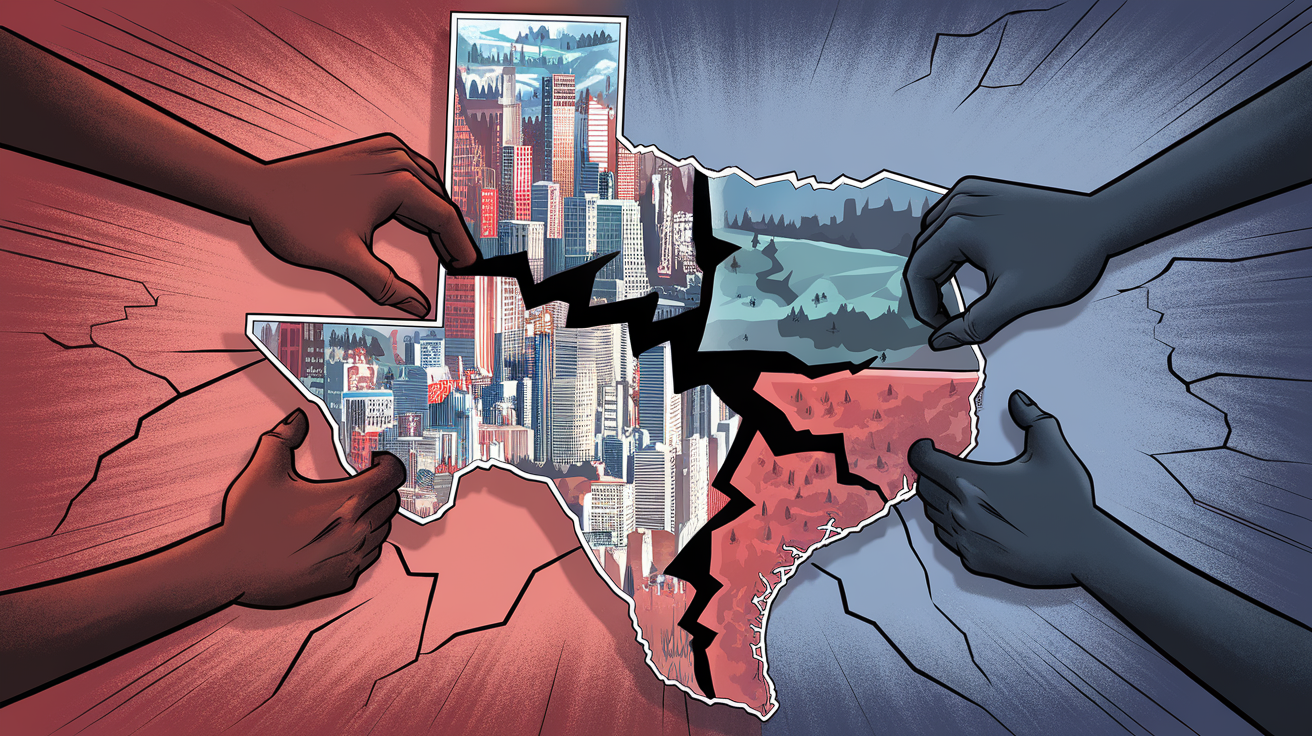In the heart of Texas, where big cities like Dallas and Fort Worth buzz with diverse crowds, a new voting map is stirring up a storm.
Governor Greg Abbott just signed a bill that redraws the lines for U.S. House districts. This change bumps up Republican-leaning seats from 25 to 30 out of 38 total spots.
Supporters say it gives Texans better representation, but opponents argue it wipes out districts where Democrats and people of color have a strong say.
Legal fights are already brewing, and folks in the Dallas-Fort Worth area are feeling the heat most.
The story starts with the 2020 census, which showed Texas growing fast, adding two more House seats. Lawmakers had to redraw maps to match the changes.
Republicans, who control the state government, crafted plans that protect their power. In Dallas-Fort Worth, a melting pot of cultures and ideas, the new lines split up neighborhoods that once voted together.
For example, areas with many Black, Latino, and Asian American residents now get mixed into bigger, mostly Republican zones.
Civil rights leader Demetria McCain from the Legal Defense Fund calls it a "shameful power grab" that silences Black voices. She points out how the process happened behind closed doors, ignoring calls for fairness.
Governor Abbott praised the map in a video, saying it creates "one big, beautiful map" for fairer voices in Congress. He fought hard to get it passed, even after Democrats walked out in protest to block the vote.
They staged a dramatic standoff, but Republicans pushed through. Former President Donald Trump cheered on social media, calling it a "big WIN" that could add five more GOP seats.
Texas Democratic Party Chair Kendall Scudder fired back, saying Republicans are "pathetic" for putting party over people. Groups like the American Civil Liberties Union warn this sets a bad example, turning elections into a rigged game.
This isn't just about lines on a map. Texas cities are booming with new folks from all backgrounds, but the redraw favors rural, mostly white areas over urban diversity. In Houston and Austin too, Democratic strongholds are getting carved up.
Experts say this kind of gerrymandering—twisting districts to help one side—has happened before, but this time it's bolder. Lawsuits are coming, with challengers claiming it breaks voting rights laws by diluting minority votes.
The big question hanging over all this: In a growing state like Texas, should mapmakers draw lines to lock in one party's wins, even if it means some groups feel left out, or should they aim for maps that let every voice count equally?
As court battles heat up, voters in Dallas-Fort Worth and beyond will decide if this change strengthens democracy or weakens it.

